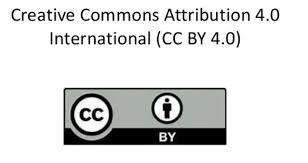Rice farmers’ perception on occupational risk exposure to pesticides in Bangladesh
DOI:
https://doi.org/10.47440/JAFE.2020.1407Keywords:
Rice farmers’ perception, occupational risk exposure, pesticides, BangladeshAbstract
Rice is a staple food and pesticides have become a dominant input for production of rice in Bangladesh. To protect the farmers’ health and environment, farmers’ understanding about risk on occupational risk exposure to pesticides is a crucial matter. Accordingly, a study was carried out in Khagdohor union of Mymensingh Sadar upazila (sub-district) under Mymensingh district in Bangladesh to assess the rice farmers’ perception on occupational risk exposure to pesticides. An interview schedule was used to collect data during MarchApril, 2018 from 100 rice farmers. Data were analyzed using descriptive statistics, rank order and coefficient of correlation. Majority of the rice farmers (73%) had medium to high level of perception on occupational risk exposure to pesticides in the study area. Among twenty (20) statements on four (4) dimensions: ‘eating, drinking or smoking could be done during mixing and loading’; ‘after applying pesticides more time should be taken to change clothes or to take bath’; ‘pesticide store house can be also used for storing food, fire wood, farming equipment and kitchen utensils’; and ‘pesticides do not kill target or non-target organisms (snakes, worms, insects, mud skippers etc.)’ were the first ranked perceived risks by the rice farmers on occupational risk exposure to pesticides regarding handling; application; storage and disposal; and human health and biodiversity stages, respectively. It was revealed that the influential factors such as education, household size, farm size, annual income, organizational participation, training received, extension media contact, ownership of pesticide applicators, and perception on the use of pesticides of the rice farmers were significantly associated with the rice farmers’ perception on occupational risk exposure to pesticides. The study specified some recommendations for the policymakers to address the aforesaid influential factors of the rice farmers on occupational risk exposure to pesticides in the study area. Moreover, awareness raising programmes, credit facilities, proper training on safety measures and suitable extension services could play a significant role in lessening the risks of the rice farmers on occupational exposure to pesticides.






 Publisher:
Publisher: 